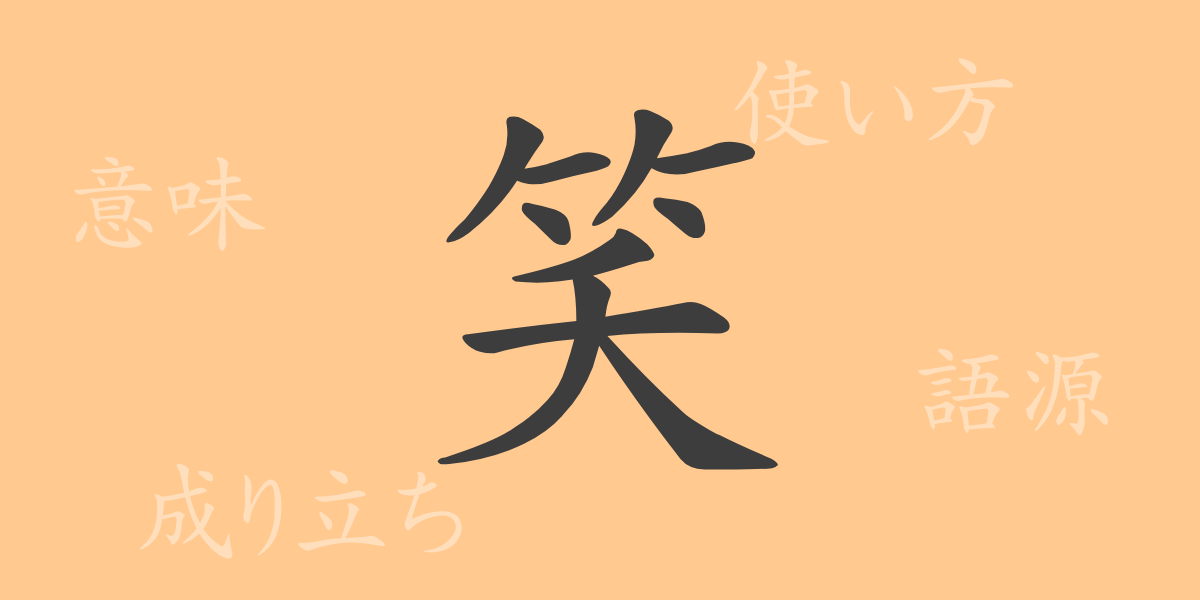The beauty of the Japanese language is reflected in its unique writing system. Kanji, with its complexity and depth of meaning, communicates the charm of Japanese culture and language to the world. The kanji “笑(しょう)” represents an indispensable emotion in our daily lives, encapsulating profound meanings within its simplicity. This article explores the allure of “笑(しょう)”, from its origins and meanings to its usage, including a wealth of idioms and phrases that enrich its context.
Origins of 笑(しょう)
The kanji “笑(しょう)” originated from ancient China, depicted initially as a smiling mouth under a “草冠(くさかんむり)”—a radical representing joy and emotions—and the lower part “夭”, originally meaning ‘young’. This character was initially a pictograph representing a smiling face, evolving over time to its current form.
Meaning and Usage of 笑(しょう)
“笑(しょう)” is used to express emotions, primarily indicating ‘to laugh’ or ‘to rejoice’. It refers to the expression that naturally appears on one’s face when they feel joy or humor. Metaphorically, it can also mean ‘to make someone laugh’, representing an act of bringing joy to others.
Pronunciation, Stroke Count, and Radical of 笑(しょう)
The kanji “笑(しょう)” offers insights into its pronunciation and structure, enhancing understanding:
- Pronunciation: The on’yomi (音読み) is “ショウ”, and the kun’yomi (訓読み) are “わらう” and “えむ”.
- Stroke Count: “笑(しょう)” is composed of 10 strokes.
- Radical: The radical of “笑” is ‘竹部(たけかんむり)’, the bamboo radical.
Phrases and Idioms Using 笑(しょう) and Their Meanings
Idioms and phrases including “笑(しょう)” are numerous in Japanese, each offering unique expressions:
- Idiom: 笑顔(えがお) – The facial expression one shows when feeling joy or happiness.
- Idiom: 笑いを取る – To crack jokes or perform amusing actions to entertain others.
- Proverb: 笑う門には福来る – ‘Fortune comes to a home filled with laughter’, suggesting that happiness and laughter bring good luck.
Summary on 笑(しょう)
The kanji “笑(しょう)” transcends mere characters, deeply ingrained in people’s emotions and daily interactions. Its simple shape belies its expressive power, making it indispensable in communication. By embracing the idioms and phrases associated with “笑(しょう)”, we can appreciate its positive influence and foster richer human connections in our lives.

























